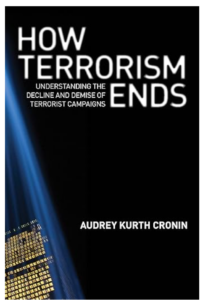 When Gazans were polled by the Palestinian Center for Policy and Survey Research, Palestine’s most authoritative opinion-research firm, just before the aborted P.A. legislative elections in May, 2021, Hamas barely scratched thirty per cent, The New Yorker’s Bernard Avishai reports.
When Gazans were polled by the Palestinian Center for Policy and Survey Research, Palestine’s most authoritative opinion-research firm, just before the aborted P.A. legislative elections in May, 2021, Hamas barely scratched thirty per cent, The New Yorker’s Bernard Avishai reports.
If Palestinians “have real choices, viable choices between diplomacy and violence, good governance or Hamas’s authoritarianism, well, I think the answer is pretty clear,” says Khalil Shikaki, the Center’s Ramallah-based director. “The overwhelming majority would want diplomacy over violence. The overwhelming majority would want good governance over authoritarianism.”
 “You have three issues,” Shikaki said. “You have the misery in Gaza and the impossibility of governing it. You have the legitimacy of the Palestinian Authority and the need to renew that. And you have the Israel-Palestine dimension that is purely about peace—that is the two-state solution and making it viable,” he tells Avishai:
“You have three issues,” Shikaki said. “You have the misery in Gaza and the impossibility of governing it. You have the legitimacy of the Palestinian Authority and the need to renew that. And you have the Israel-Palestine dimension that is purely about peace—that is the two-state solution and making it viable,” he tells Avishai:
- First, in Gaza, people need “rule of law” and “living conditions that are sustainable,” he said. “And that isn’t really going to happen under Hamas rule.” Rather, Gaza “has to be part of the West Bank and the Palestinian Territories,” which means that “the Palestinian Authority in the West Bank has to be the Palestinian Authority in Gaza as well.”
- But, Shikaki said, that means, second, that the P.A. needs to seem plausible again by holding an election, which is the eventual path to unification and legitimacy. Mahmoud Abbas, the Palestinian President, “will likely wait and see Israel destroying his rival and show Gazans and West Bankers both that Hamas cannot deliver prosperity or stability.” RTWT
The moral clarity with which so many around the world, with different ideologies, representing different political movements and parties, condemned Hamas’s brutal attack on Israel should be an inspiration for moral clarity on other issues as well, according to Eric S. Edelman, counselor at the Center for Strategic and Budgetary Assessments, and David J. Kramer, executive director of the George W. Bush Institute and chair of the Free Russia Foundation. Ukraine should not and will not be forced to surrender its men, women, children, sick, poor, and elderly to the brutalities of Russian oppression to fulfill a fantastical notion of American realpolitik, they write for The Bulwark.

Only a truly unified political leadership will fortify Israel’s democracy for the difficult military operations ahead, giving it the domestic mandate necessary to build a winning strategy and end Hamas for good, adds Audrey Kurth Cronin, Director of the Carnegie Mellon Institute for Strategy and Technology and the author of How Terrorism Ends: Understanding the Decline and Demise of Terrorist Campaigns.
Terrorism is incredibly challenging for democracies because it is an accelerator for war, she writes for Foreign Affairs:
Elected leaders must regain the upper hand and replace fear with resolve. Dispassionate strategic thinking in the aftermath of terrorist attacks is difficult, but it is the only way to end a group—which Israel says it wants to do. The history of modern counterterrorism holds a clear lesson: only through the strict targeting of a terrorist organization can a state permanently crush it and avoid a wider conflict.
Israel, in contrast to Ukraine and the West, faces a genuine dilemma, in which no choice is good, notes Alexander J. Motyl, a professor of political science at Rutgers University-Newark. It cannot fail to respond to Hamas’s atrocities, on the one hand. But none of its responses is satisfactory, on the other hand, he writes for The Messenger:
Invading Gaza could prove to be a humanitarian disaster that could diminish much of the sympathy that Israel currently enjoys. An invasion also would result in significant Israeli casualties, even if it ultimately resulted in success. And, of course, no one can easily state just what an Israeli success would look like. Can Hamas really be eliminated? Can Gaza be occupied and controlled? Can the war be kept from expanding to include Syria, Iran and Hezbollah?
As Israel struggles with these questions, both morality and geopolitics dictate that Ukraine and the West have no choice but to side with Israel, Motyl adds. After all, Israel’s war is Ukraine’s war, and Ukraine’s war is Israel’s. And both wars are the West’s. The alternative — a world in which imperialism, aggression, revanchism and fascism are triumphant — is unacceptable.
Only a truly unified political leadership will fortify #Israel’s #democracy for the difficult military operations ahead, giving it the domestic mandate necessary to build a winning strategy and end #Hamas for good, @akcronin writes for @ForeignAffairs. https://t.co/VhiiZPTbGv
— Democracy Digest (@demdigest) October 16, 2023







